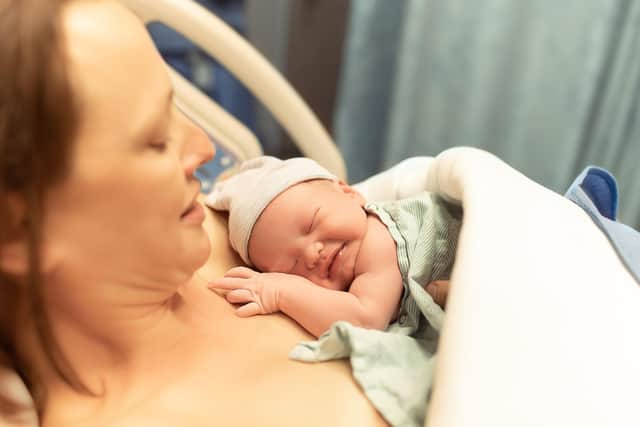Covid pandemic: Lockdown prevented early births, according to Scottish researchers
Research carried out by the University of Edinburgh, as one of 167 global partners, has shown the number of pre-term births around the world dropped 3 per cent to 4 per cent in the first four months of Covid-19 lockdowns. The results suggest that, globally, an estimated 50,000 fewer babies were born before 37 weeks of pregnancy than expected after the initial coronavirus lockdowns.
The findings are based on data comparing 56 million births from 26 countries between January 2015 and July 2020.
Advertisement
Hide AdAdvertisement
Hide AdExperts say the drop could be linked to pregnant women being exposed to fewer non-Covid-19 infections and better air quality, because of reduced traffic, during lockdown.


Professor Sarah Stock, professor in maternal and foetal health at University of Edinburgh’s Usher Institute, said now “the challenge is to understand why pre-term births fell”. “Infections are a cause of pre-term births, and we know that non-Covid-19 infection rates dropped during periods of lockdown,” said Dr Stock, a senior author and consultant obstetrician at the Usher Institute.
“However, changes in other factors that are linked to pre-term birth, such as air pollution and maternal workload, may also have contributed.”
According to researchers, on average there are an estimated 14.8 million pre-term births each year worldwide. Related complications account for 35 per cent of newborn deaths, making it the leading cause of infant mortality globally.
Researchers also investigated whether declining numbers of pre-term births could potentially lead to higher numbers of stillbirth. Some babies are delivered intentionally early to save their lives and any reduction in this intervention could result in a rise in stillbirths.
The team found high income countries experienced no change in stillbirth rates. However, data from Brazil showed an increase in stillbirth rates during the second, third and fourth months of their lockdown.
The shift in some countries could be because of delayed or reduced access to quality healthcare during the early stages of the pandemic or other factors related to Covid-19 lockdowns, experts say.
Dr Clara Calvert, first author and Chancellor’s Fellow at University of Edinburgh’s Usher Institute, said: “This study represents a huge global collaborative effort and we were able to show decreases in pre-term births in the first few months of the Covid-19 lockdowns across many countries, providing a strong indication that lockdown played a role in these reductions.”
Advertisement
Hide AdAdvertisement
Hide AdThe research was part of the International Perinatal Outcomes in the Pandemic (iPOP) Study, which investigates the impact of pandemic lockdowns on preterm births and stillbirths worldwide. iPOP is a collaboration between 167 global partners, including the University of Edinburgh.
The researchers also said the data should be interpreted “with caution” as it is “highly skewed towards high-income countries” due to the lack of data available from low and middle-income countries.
The findings were published in the journal Nature Human Behaviour, with the work being supported by the International Covid-19 Data Alliance.
Comments
Want to join the conversation? Please or to comment on this article.